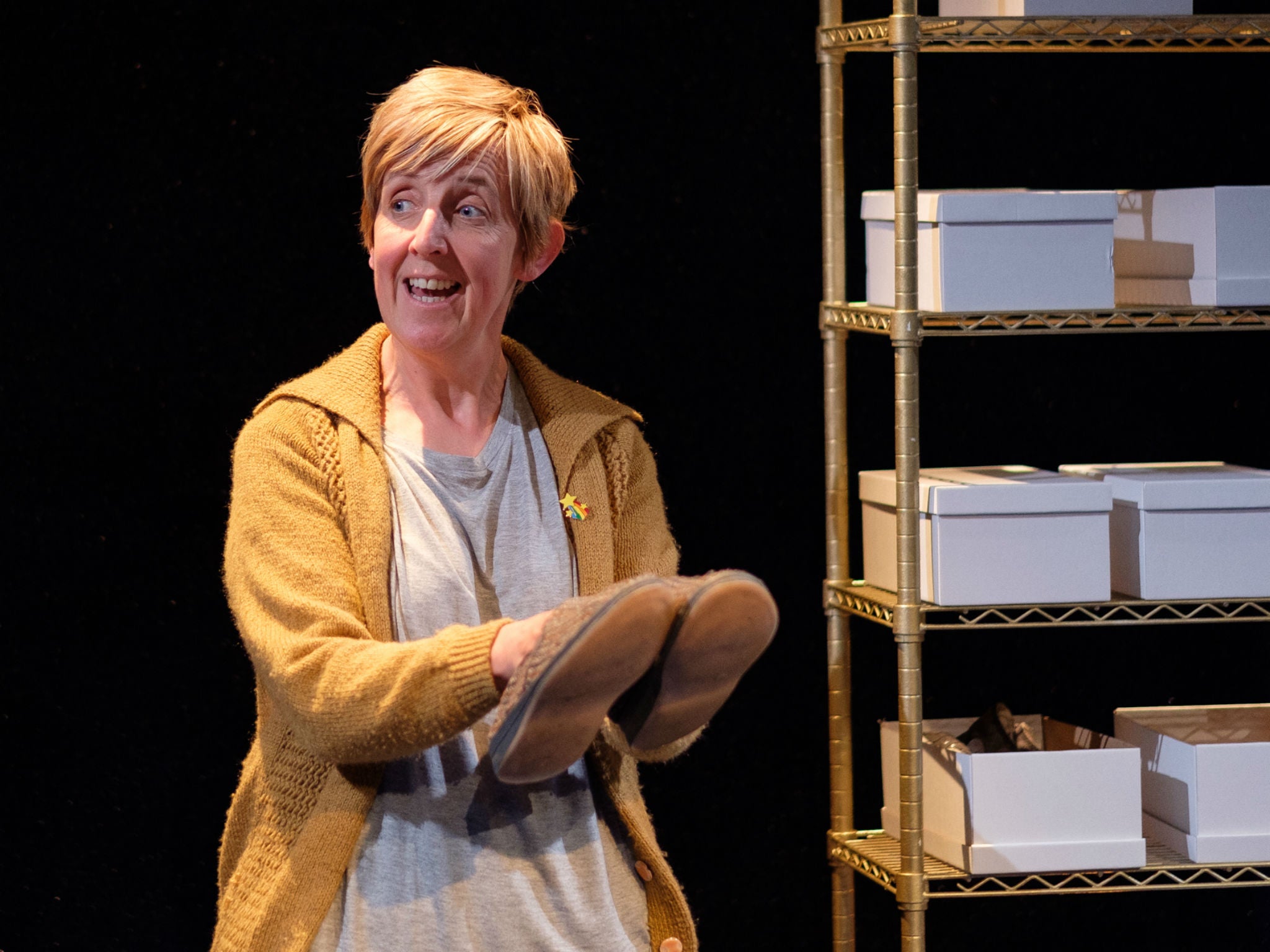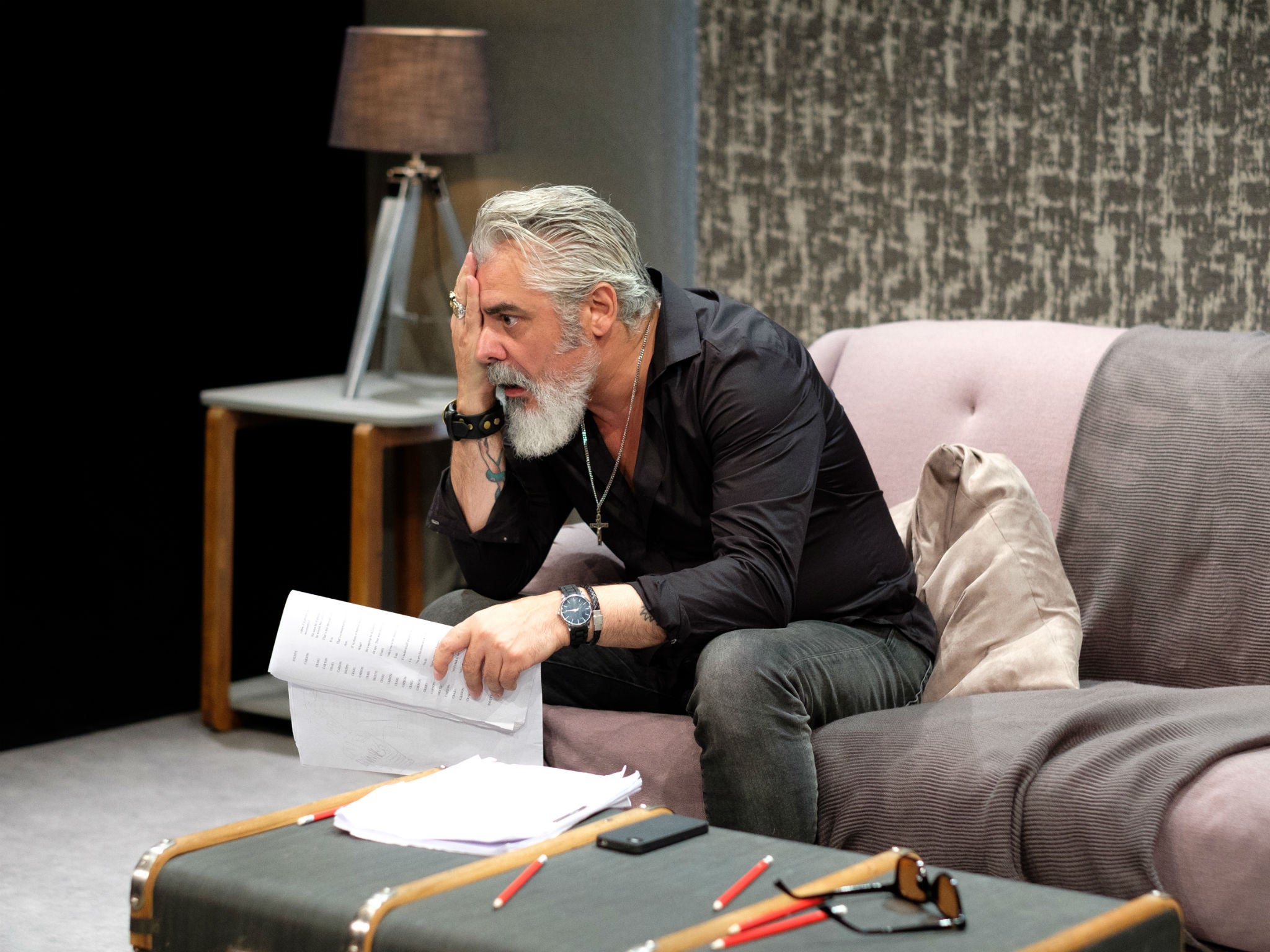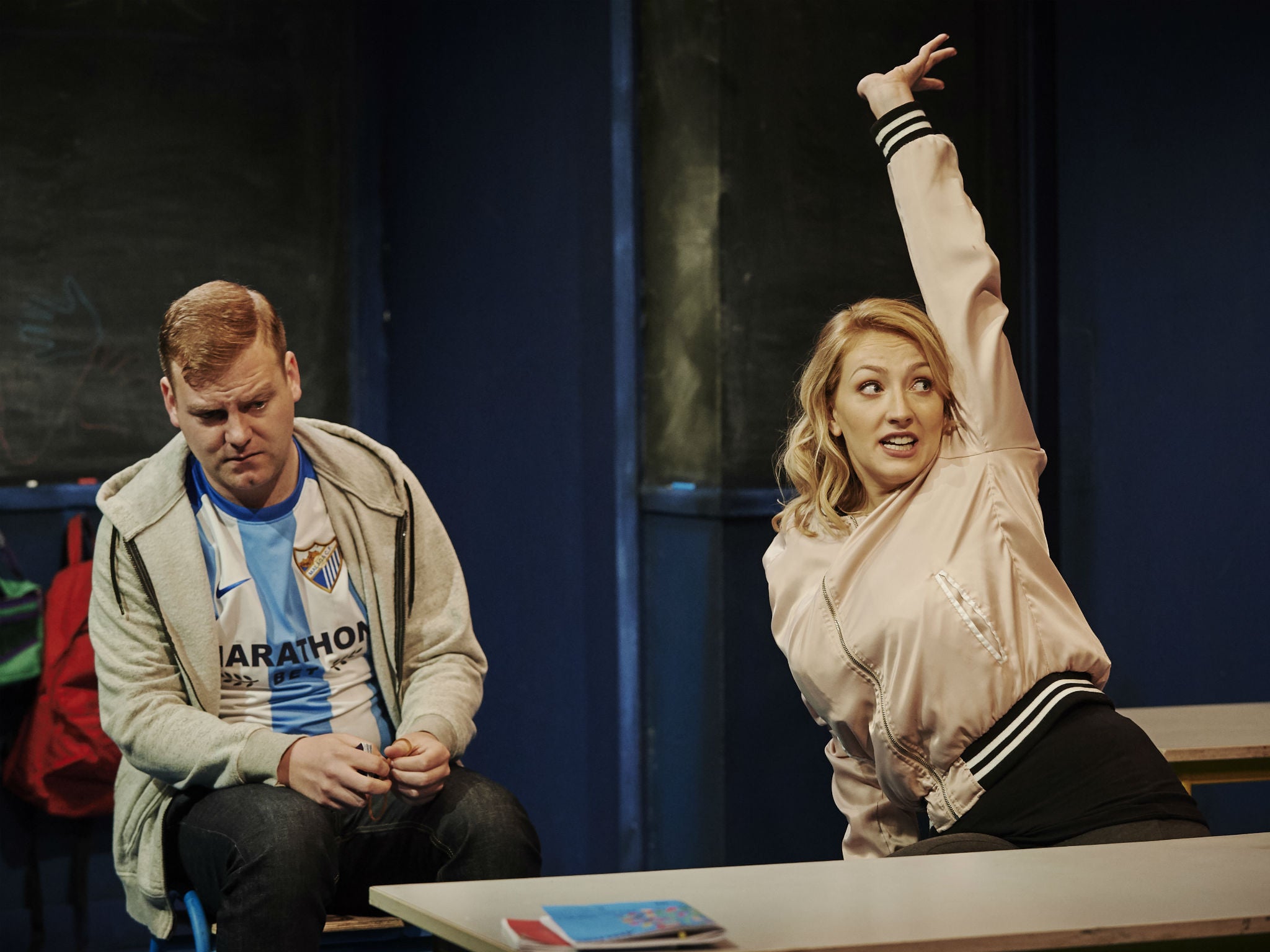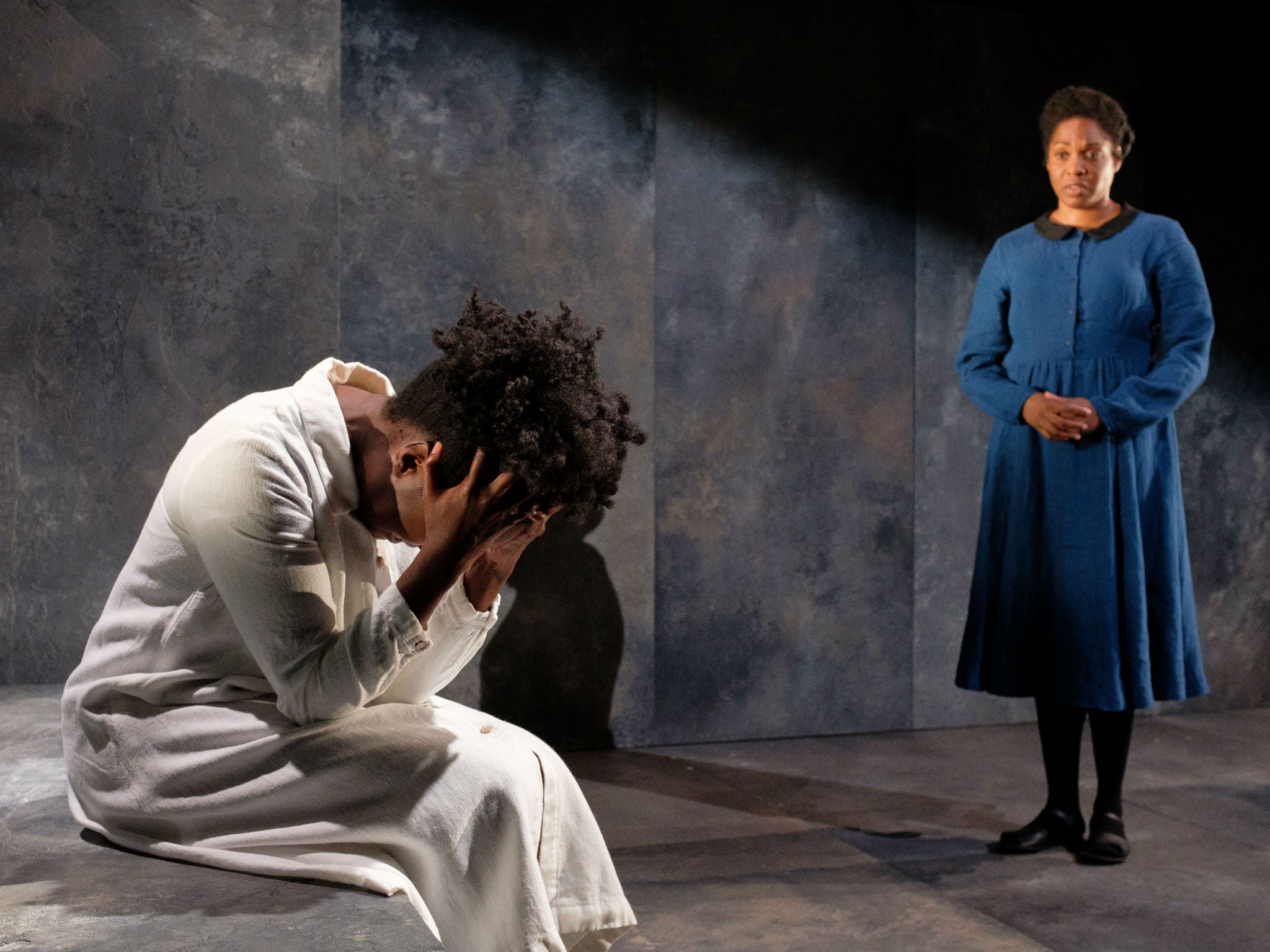Edinburgh Fringe Festival 2018: A roundup of the Traverse shows
Lyn Gardner reviews The Greatest Play in the History of the World… (★★★★☆ ), Ulster American (★★★★☆), Underground Railroad Game (★★★★☆), Class (★★★☆☆) and Meek (★★★☆☆)

Your support helps us to tell the story
From reproductive rights to climate change to Big Tech, The Independent is on the ground when the story is developing. Whether it's investigating the financials of Elon Musk's pro-Trump PAC or producing our latest documentary, 'The A Word', which shines a light on the American women fighting for reproductive rights, we know how important it is to parse out the facts from the messaging.
At such a critical moment in US history, we need reporters on the ground. Your donation allows us to keep sending journalists to speak to both sides of the story.
The Independent is trusted by Americans across the entire political spectrum. And unlike many other quality news outlets, we choose not to lock Americans out of our reporting and analysis with paywalls. We believe quality journalism should be available to everyone, paid for by those who can afford it.
Your support makes all the difference.At the start of August the Traverse Theatre operates as the canary down the mine for the Edinburgh fringe. A firing on all cylinder’s festival season at the theatre is frequently a very good indicator of the quality of this year’s fringe overall.
Strictly, there should be no connection because the Traverse season is as heavily curated as the Edinburgh International Festival, while the fringe is a free for all. Well actually, not free at all, but increasingly expensive both for those bringing shows to the festival and those coming to see them.
Orla O’Loughlin’s final season as artistic director of a theatre which at its best is both venerable and radical bodes pretty well. Who could not fall in love with Ian Kershaw’s The Greatest Play in the History of the World..., which acknowledges the absurdity of its own tongue-in-cheek title and the absurdity of our little human existence in a vast universe. It stars the world’s warmest actor, Julie Hesmondhalgh, best known to many as Hayley Cropper from Coronation Street.
This mind-bending time-travelling show, which comes with hints of Daniel Kitson’s snaking storytelling style, is performed by Hesmondhalgh with such empathy and care for the audience that it is about as close as theatre can come to being hugged for 70 minutes nonstop. It is a play about love, performed with love and with a little help from the audience’s shoes.
If good theatre reminds us what it’s like to be in someone else’s shoes, this is a show that makes us feel as if we are walking in them. There is enough grit and beady-eyed observation of human nature to ensure that while this tale of four people, who find themselves alone on the Preston Road in a world where all the clocks have stopped at exactly 4.40am, may flirt with the sentimental it always swerves away from it. Both Kershaw and Hesmondhalgh know exactly what they are doing.
So does writer David Ireland in Ulster American whose last play, the shockingly brilliant Cyprus Avenue, featured a Belfast loyalist whose fanaticism stretched to the belief that his five-week-old granddaughter was Gerry Adams.

Ulster American – sharply directed by Gareth Nicholls and performed with a ferocious intensity – offers another kind of lunacy as a Hollywood actor (Darrell D’Silva), a northern Irish playwright called Ruth (Lucianne McEvoy) and an ambitious theatre director (Robert Jack), with an eye on eventually running the NT, come together on the eve of rehearsals for Ruth’s new play.
Like Martin McDonagh, Ireland has the gift of being able to make you choke on your own laughter. This savage satire on cultural identity, in which the power in the room is minutely dissected moment by moment as confusion, misunderstanding and ugly prejudice reign, is undeniably funny and discombobulating at the same time.
No more so than in an exchange about rape between the two men during which the liberal theatre director proves himself as much a posturing dinosaur as the Hollywood actor. It’s a piece that probes the limits of #MeToo to really change the structures of power or our ability to see the world from other people’s perspective or beyond the cultural stereotypes of Hollywood and our own worldview. It reaches a furiously funny climax which proves suggests that the pen is not just mightier than the sword but can be a sword.
No less discomforting is Jennifer Kidwell and Scott R Sheppard’s Underground Railroad Game which confronts the legacy of slavery on the daily relationships between white people and people of colour head on as it asks how history is taught and how what is taught shapes our conscious and unconscious.

A devised piece that recently made the New York Times’ list of the 25 best plays since Angels in America, Underground turns the audience into fifth-graders at Hanover Middle School where white teacher Stuart and black teacher Caroline (played by the show’s creators) are conducting a history lesson which aims not just to teach history but to live it. But as the relationship between Stuart and Caroline becomes physically closer, it becomes apparent that we all live our history every day and there is often no escaping it.
Underground Railroad Game is fearless in the way it confronts shame and slippery in the way that it refuses to ever let the audience off the hook. It makes a predominantly white liberal theatre audience (and is there another at the fringe?) squirm. With good reason.
The classroom is also the setting for Iseult Golden and David Horan’s Class, in which the school becomes a microcosm of Irish society.

Estranged parents Brian (Stephen Jones) and Donna (Sarah Morris) have been called into talk to teacher Mr McCafferty (Will O’Connell) about their son who is struggling with literacy. Even the chairs they are made to sit on make Brian and Donna feel small and Mr McCafferty’s long words make them feel smaller still as past failures feed into present expectations.
This is a compassionate, wryly amusing piece, given further humanity by the way that the actors playing Brian and Donna also play two nine-year-olds in Mr McCafferty’s class. But there is an unsatisfying ambiguity in the way Golden and Horan present the teacher and, for all the drama’s compassion, it could benefit from more anger about the way children’s potential is wasted and they are set up to fail before they have barely started.
Penelope Skinner’s Meek was apparently written before The Handmaid’s Tale hit our screens but will undoubtedly invite comparisons.

It’s set in an imaginary Scandinavian county where Christian fundamentalism has taken grip. Women must ask their husband or father’s permission to leave the house, adultery is a terrible crime, blasphemy severely punished and when the mildly subversive Irene (Shvorne Marks) is betrayed to the authorities they decide to make an example of her. But in the process do they risk turning her into a martyr?
This is a very intelligent play with an impressively economic storytelling style. But the two reveals in the plot are a little too obvious, and while this 70-minute grips it never quite shakes you to the core as a warning about what the future might hold for us all, particularly women.
All productions run to 26 August. Box office: 0131 228 1404 www.traverse.co.uk
Join our commenting forum
Join thought-provoking conversations, follow other Independent readers and see their replies
Comments